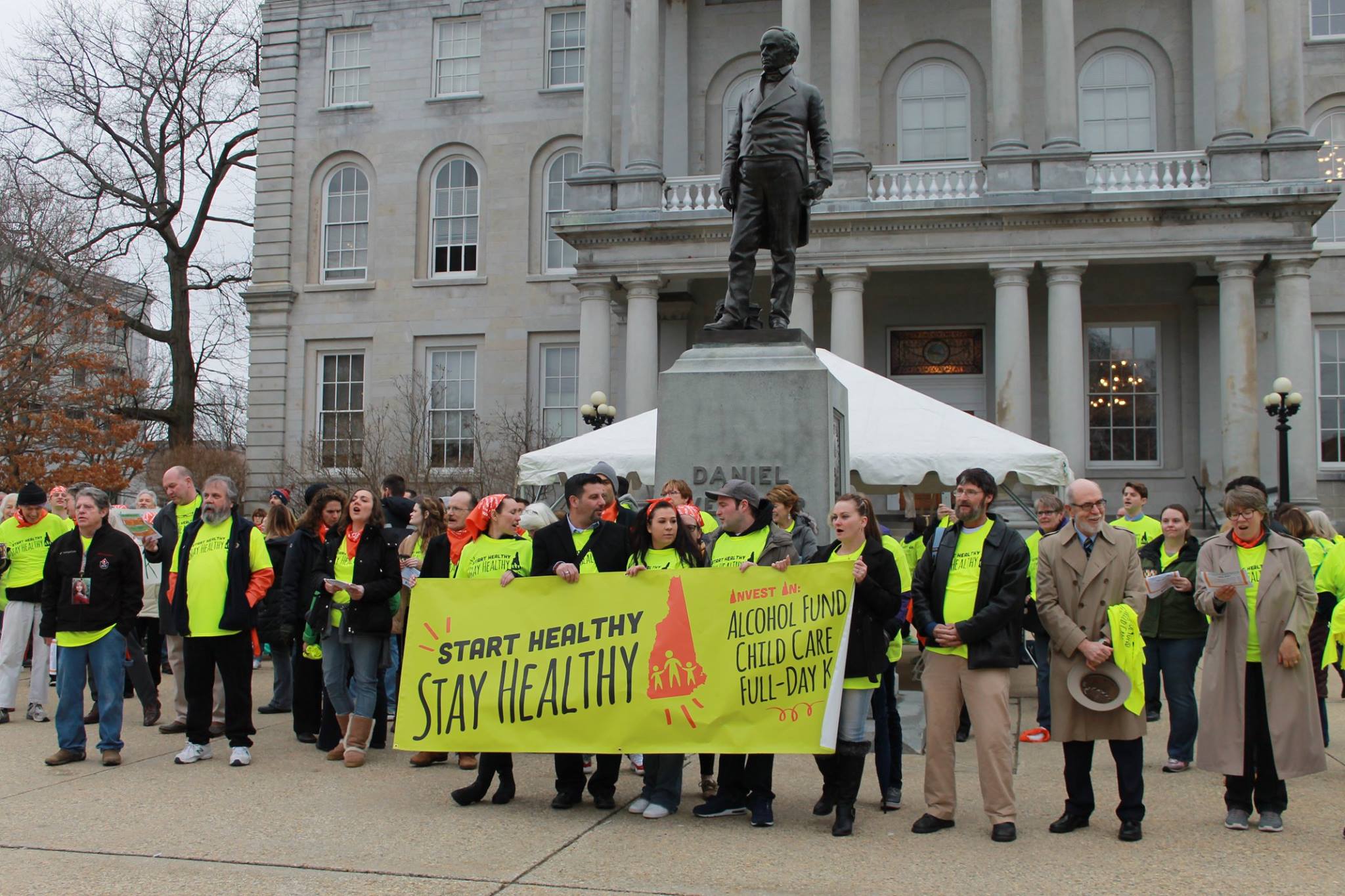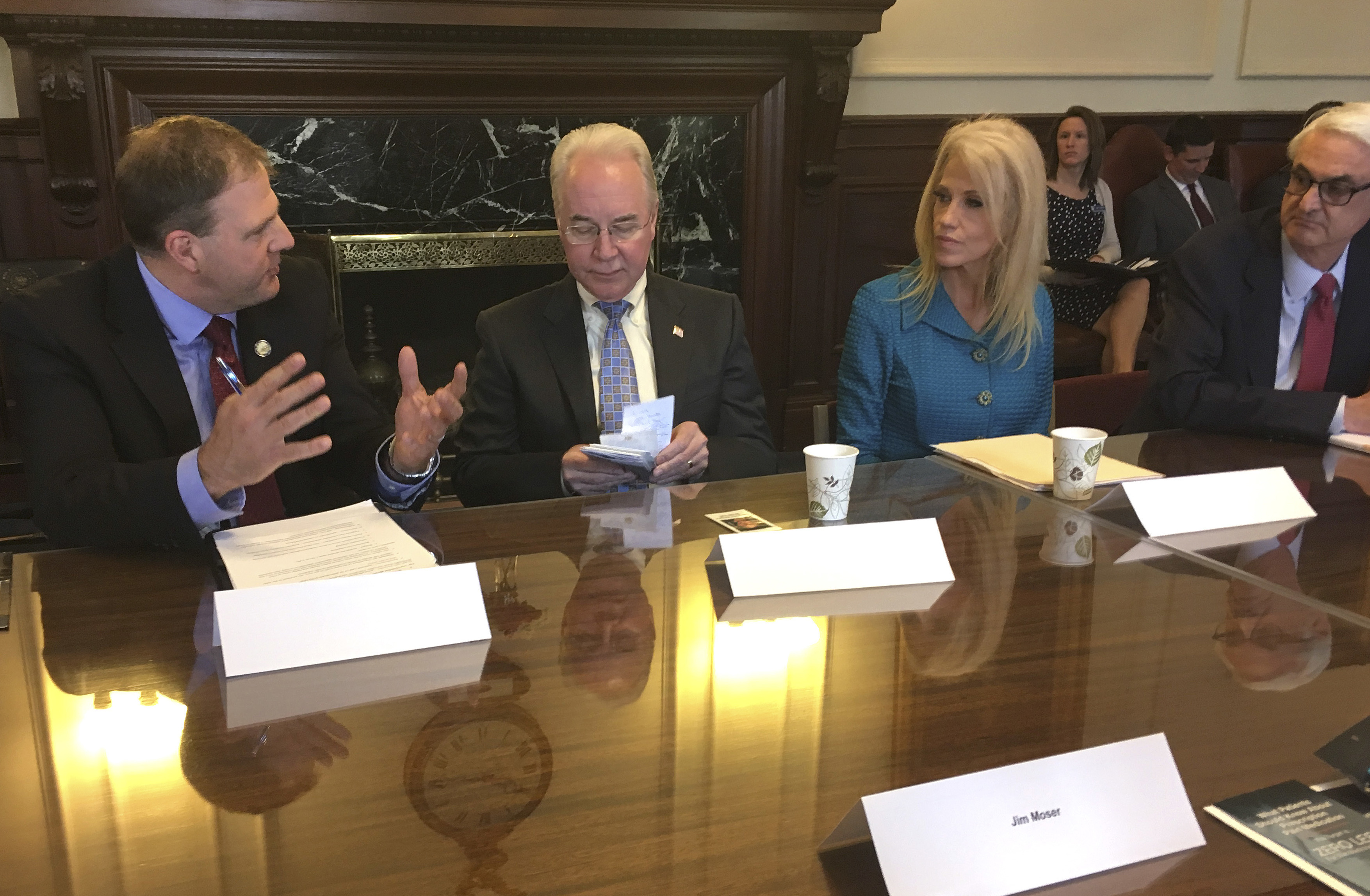Alcohol Fund Becomes Latest Political Battle for N.H. Lawmakers During Budget Process

When it comes to the opioid crisis, one would expect every state dollar allocated to the epidemic would be spent. That’s apparently not exactly what happened this fiscal year. A substantial surplus remains in the Alcohol Abuse Prevention and Treatment Fund, also known as the Alcohol Fund, and lawmakers are trying to pin the blame on almost everyone.
The Alcohol Fund was created in 2000 by the Legislature as a mechanism that takes 5 percent of the gross profits from the sale of alcohol to support education, prevention, treatment, and recovery programs for substance abuse, which encompasses alcohol and drug abuse.
The focus right now for the Governor’s Commission on Alcohol Drug Abuse Prevention, Treatment, and Recovery, which gives out the funds, is the opioid crisis, but alcohol abuse is also part of its mission. The commission was allocated approximately $9 million in the 2017 fiscal year and will reportedly end the year on June 30 $2 million to $4 million in the black.
Tym Rourke, chair of the governor’s commission, said he is working with the Department of Health and Human Services to determine the exact amount and will release those figures this week.
That’s where the confusion lies for legislators as they finalize the state’s biennium budget this month. DHHS Commissioner Jeffrey Meyers has said he anticipates a $2 million surplus from contracts that didn’t use their full funds. The nonpartisan Legislative Budget Assistant is putting the number at $4.3 million. The discrepancy and uncertainty as to why the funds weren’t all used during the year was on full display during the Senate marathon budget session on Wednesday.
Sen. Martha Hennessey, D-Hanover, who also sits on the governor’s commission, questioned why there was an amendment introduced that would allocate $2 million from the Alcohol Fund for the construction of a juvenile substance abuse wing at the Sununu Youth Services Center in Manchester without the commission’s approval.
Senate Majority Leader Jeb Bradley, R-Wolfeboro, said they had to have “some frank talk” about the Alcohol Fund.
“It is pathetic that there is $4.3 million sitting in an account unexpended in the middle of a heroin crisis. That’s what we should be focused on. That’s outrageous,” he said. “So let’s look at the reforms this amendment tries to put in place … that’s called taking action, not sitting on $4.3 million.”
Hennessey countered to say that the fund would only have a $2 million surplus, but said Gov. Chris Sununu and Meyers should also be to blame.
“The governor and commissioner at HHS have not helped to facilitate the spending of this,” she said. “They are waiting to find out what kind of health care we’re going to have, what’s going on with Medicaid, all of which is up in the air. So if our governor and HHS aren’t helping to make this possible, that money can’t be spent.”
The Alcohol Fund fund has only been fully financed one time since its inception, which was in the 2003-2004 biennium — the first year it began. Since then, governors or the Legislature transferred the revenue to the general fund and would only appropriate a small amount to the Alcohol Fund. In the current biennium passed under former Democratic Gov. Maggie Hassan, the fund was financed at 1.7 percent. In Sununu’s budget proposal and in the Senate’s budget, the fund was doubled to 3.4 percent.
Rourke applauded the Senate for increased monies to the fund, but reminded lawmakers that the Alcohol Fund is non-lapsing and any money left over is rolled over to the next fiscal year, so the commission could “repurpose and redeploy those dollars.”
Rourke said he had concerns about another amendment introduced in the Senate budget that would give the DHHS commissioner the ability to take money out of the Alcohol Fund itself and not from the potential surplus.
“The [governor’s] commission has a statutory authority over the fund and DHHS administers it, based on priorities set by the Commission” he told NH Journal. “The main concern is the precedent it would give for a commissioner to take money from the Alcohol Fund, without approval of the spending plan by the Commission.”
He said the 3.4 percent funding for the next biennium is mostly going to be used to sustain ongoing investments and state contracts to combat the opioid crisis. If the commissioner can take funds at anytime, Rourke is concerned that they would have to cancel contracts and put funding for other programs at risk.
So why is there a surplus in the first place? Rourke attributes it to two factors: Medicaid and workforce issues.
When the Legislature voted to renew Medicaid expansion in 2016, treatment and recovery centers were not clear if people who showed up would be covered by private or public insurance. The commission wanted to keep the funds available to those centers in case they needed to cover their insurance costs. Rourke said contractors ultimately didn’t need to draw on those funds.
He also said the workforce crisis in the mental health system resulted in funds not being used by contractors.
“We have treatment contractors who may have been given funding and have had a difficult time hiring appropriate staff,” he said. “Obviously, you’re not drawing on that salary while you’re waiting for that hire. If you talk to providers, there is that pressure on them on hiring and maintaining staff.”
The Senate budget is likely to go to a conference committee with the House, where lawmakers from both chambers will go over the details before voting on the final spending plan. The House previously stripped money for the Alcohol Fund in its version of the budget, so Rourke said he will continue to work with lawmakers on ensuring the funds are kept in place.
Sign up for NH Journal’s must-read morning political newsletter.




